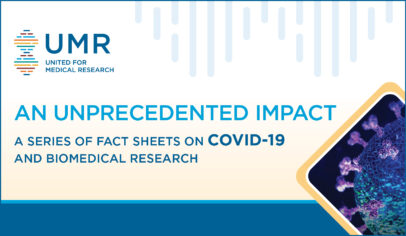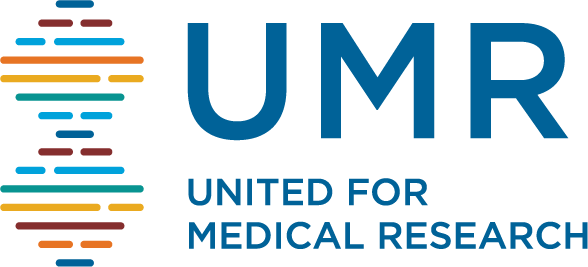
June 17, 2020
Summary
In this series of fact sheets, UMR looks at the unprecedented impact that COVID-19 is having on biomedical research. From a laser-like focus by researchers, medical professionals and life sciences and biopharmaceutical companies worldwide to understand, mitigate, treat and eradicate the pandemic, to massive disruptions to ongoing research in all fields that is jeopardizing important work, stalling life-saving clinical trials and upending the career paths of many graduate students and early career scientists, COVID-19 is touching all aspects of our biomedical research enterprise.
Part 1 in the series focuses on the effort to combat COVID-19.
Part 2 in the series looks at the disruption to the research pipeline caused by the pandemic and the consequences to health and the economy.
Part 3, “Progress On Hold,” profiles several researchers and the impact that COVID-19 is having on their work and the implications for patients
- Dr. Matthew Gentry of the University of Kentucky College of Medicine who is closing in on a treatment for Lafora disease
- Dr. Steven Soper of the University of Kansas who is working to commercialize a sequencing technology that could revolutionize disease testing and management
- Dr. Brenda Heaton of Boston University’s Henry M. Goldman School of Dental Medicine is working to address dental and health disparities affecting residents of public housing
- Dr. Ariana Chao of the University of Pennsylvania School of Nursing is studying the impact of cognitive behavioral therapy on the brain function of people with binge eating
disorder
Part 4 looks at the remarkable progress that is being made to understand, treat and eradicate COVID-19 and the role of the NIH in driving this effort forward.
